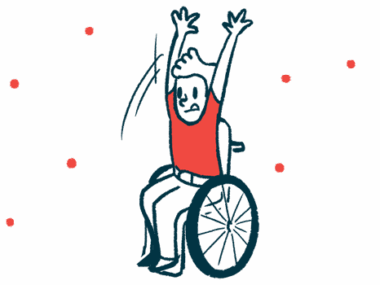We Choose to Fight for the People Left Behind
Written by |

Weeks ago, when my friend Sherry and I started brainstorming topics for Disability Pride and SMA Awareness Month, we talked about choice. Specifically the hypothetical kind. In an ideal world, with free healthcare and radical accessibility, would we choose to stay disabled?
It’s a question I’ve asked myself numerous times. I often joke that, were I magically cured, I wouldn’t know how to function. Taxes? Credit scores? Insurance plans? I am a baby; try as I might, I will never understand the language of adulting.
There’s so much to unpack here regarding the infantilization of disabled folks. Individuation is next to impossible. Many of us are so dependent on caregivers that we struggle to function as adults in the 21st century. Not to mention the marginalization — the subminimum wage, the marriage inequality, the illogic of being unable to have more than $2,000 USD in savings at any given point in time.
So, there are the logistics of it. You live life one way, only to make a complete 180; there are bound to be some missteps along the way.
There’s also the emotional component. I’ve written previously about my relationship with SMA. My disability complicates and enriches my life, to the point where I can’t imagine a version of me that isn’t in a wheelchair. Disability is all I’ve known. It’s frustrating and fantastic and inextricable from who I am as a person. I can’t just lobotomize that part of myself, even in an ideal world with hypothetical cures.
Sherry and I milked the topic for all it was worth. Inevitably, we deconstructed the question. Is an ideal world ideal for everyone, or just for you? It’s one thing for me, a white, middle-class, cisgender woman in the U.S., to say that I would remain disabled. But Sherry is a different person with different life experiences and different resources at her disposal.
Ultimately, Sherry’s choice — to stay disabled or to take advantage of that hypothetical cure — is radically different from mine.
Lately, when I think about choice, I think about the people we inadvertently leave behind. When I take my daily dose of Evrysdi (risdiplam), I abandon the tens of thousands of people worldwide who do not have access to disease-modifying therapies.
When I attend conferences, virtual and in person, I abandon the communities who are overlooked by organizations simply because of where they live.
When I accept the world as it is, I abandon those who suffer as a result of my “ideal world.” Cheap clothes made in sweatshops; cheap chocolate made with slave labor. Luxury at the expense of others.
This isn’t to spurn gratitude. I am so stupidly thankful — for the medication, the therapy, the advocates at the national level. My life looks the way it does because of those blessings. But there’s still a choice.
In an ideal world, with free healthcare and radical accessibility and reliable caregivers, I would choose to stay disabled. Just as I would choose to fight alongside the people who are creating a world that benefits us all — people who are fighting for access to treatment, for accessible workplaces, for organizations at the local, national, and global level.
That’s what advocacy is. Fighting for people you’ve never met, and probably never will. Fighting for future generations, kids with SMA who will never know the pain of deep suctioning. Fighting for others, and in so doing, fighting for yourself.
It’s like they say. None of us is free until all of us are free.
***
Note: SMA News Today is strictly a news and information website about the disease. It does not provide medical advice, diagnosis, or treatment. This content is not intended to be a substitute for professional medical advice, diagnosis, or treatment. Always seek the advice of your physician or other qualified health provider with any questions you may have regarding a medical condition. Never disregard professional medical advice or delay in seeking it because of something you have read on this website. The opinions expressed in this column are not those of SMA News Today, or its parent company, Bionews, and are intended to spark discussion about issues pertaining to spinal muscular atrophy.





Leave a comment
Fill in the required fields to post. Your email address will not be published.